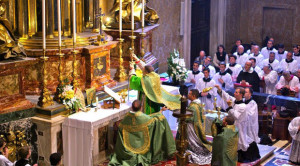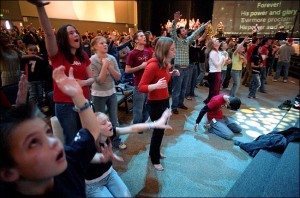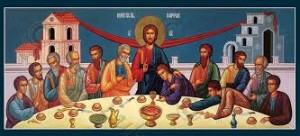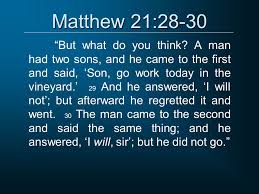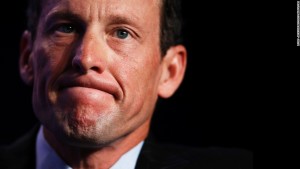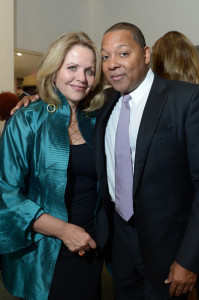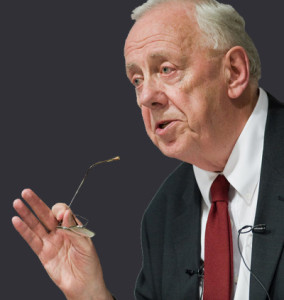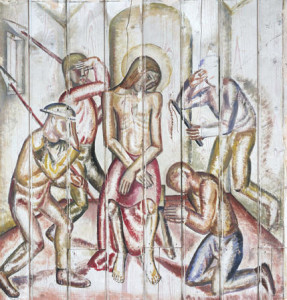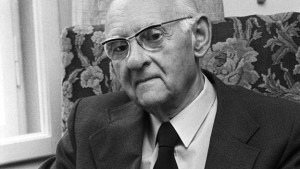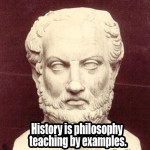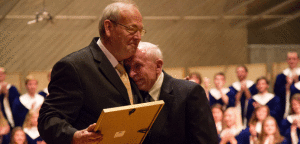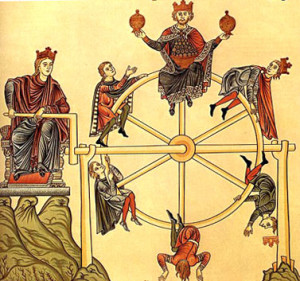My blog isn’t particularly about the Benedict Option, but I have paid attention to the discussion that blogger and journalist Rod Dreher has occasioned by his efforts to unpack the last page of Alasdair MacIntyre’s important book After Virtue. He’s linked to me again (thank you!), and so I need to put out some more product. Years ago, I resisted reading MacIntyre, mostly because I didn’t have a lot of confidence in cultural conservatives to instigate a genuine moral reform of society, much as I felt that we needed it. And I figured that MacIntyre’s book was part of the conservative virtue brigade, a la William Bennett (it’s not). I’ve never been keen to the liberal/conservative divide that is woven into the general fabric of the modern world since the French Revolution. I’ve often felt about conservatism as I do about classical music (much as I like it). Whatever the merits of Mozart–and there are many, many of these–repeating Mozart over and over again will not revive the ancien regime. We may even distort our minds and waste valuable time pining for something totally imaginary, and not all that desirable in the end.
The social world that made Mozart possible is gone, and this is not entirely a bad thing. The social world that made the composition of Gregorian chant possible is almost gone, and this is definitely not a good thing.
How to revive monasteries? This is the question that Benedictines and others have been scrambling to answer since the suppressions of the Reformation and the Revolution. Just as we seemed to have answered it, as vocations were pouring into monasteries in the 1950’s, we discovered that the Western social milieu, that seemed so open to deep religious sentiment and observance, turned out not to have the goods after all. Large proportions of those vocations left the monasteries once the glow wore off and the 70’s got going.
The two options usually held out for religious life parrot the conservative/liberal divide: either return to strong, traditional observances (usually ones from the 1950’s, which were the same ones that failed to win the hearts of the droves who left in the 1970’s), or figure out ways to accommodate to a new cultural situation. Let me examine each option using the tools that Mary Douglas offers us in Natural Symbols.
First, let’s dismiss the accommodation possibility. Accommodate to what? Douglas begins her book with a withering review of the attempts of English bishops after the Second Vatican Council to update Friday abstinence and replace its dense symbolism (participation in the Passion, clear social demarcation from non-Catholics) with something more internal, “moral,”–perhaps we might say “sincere.” I will have a lot more to say about the social conditions that determined the bishops’ preferences for dumbing-down ritual and hyping up “heart religion.” Let me just note here that Dame Mary misses no opportunity gently to chide those who imagine that this heart religion is more advanced and progressive than the magical world of the lower-class “Bog Irish” for whom Friday abstinence was a matter of fidelity to a beleaguered homeland and the grandeur that was Rome. Anthropologists of the 1950’s could provide myriad examples of “primitive” African pygmy societies whose religion played more or less the same tune as the highly educated clerics who imagined themselves on the cutting edge.
What accommodation amounts to, If Prof. Douglas is correct, is the willing, albeit unwitting, suicide of the sacramental cosmic worldview of traditional Catholicism and Orthodoxy. So it’s not a road we can take if we are serious about belonging to a Mystical Body that includes Saint Paul, St. Basil, St. Benedict, St. Gertrude the Great, St. Hildegard of Bingen, Dante, St. Symeon the New Theologian, etc.
But what does non-accommodation look like? Critics of the Benedict Option challenge advocates to demonstrate that communities opting out will not become ingrown and cultish. Dame Mary has advice on this score, too.
In social arrangements that she calls “small group,” we see just these characteristics: strong boundaries separating the group from the external world, and fear of contamination by a world dominated by maleficent forces lurking everywhere outside and threatening to infect the group. She doesn’t spend a lot of time on these groups, but what she has to say contains more than enough information to know how to avoid becoming a cult (or, for that matter, how to become one, if that’s what you’re gunning for).
The small group is one in which the numbers are genuinely low. More importantly, authority is weak, and therefore internal structure is confused. Because authority is weak and structure is confused, the group is in constant danger of disintegrating, and generates for itself a fear of evil influences and a high premium on internal purity (both in terms of the group and the individual). This is a congregation of the saved, and they are saved by their own efforts of purification and prophylactic measures against a corrupted world.
I’ve pointed out to the brothers that the Rule of the Master gives us a perfect description of “small group.” And it is part of Saint Benedict’s great genius and sanctity that he corrects these tendencies of the Master in order to produce a community structure that it clear, articulated by ritual and symbol, discerningly open to the world, flexible and sure of itself (because based in Christ, the Logos, whose ordering principles are seen to inhere in the cosmos daily redeemed in the Holy Eucharist and Divine Office). Here is an example of the counter-intuitive fruits of taking Mary Douglas seriously: when a brother is struggling with thoughts, his first attempts to deal with them often involves an attempt to purify himself inwardly by an effort of will, coupled with a feeling of shame and guilt for having this inward impurity. My advice: definitely work against the thought, but often enough these troubling thoughts are a product of an unwillingness to observe clear roles within community life, to confuse structure and therefore to act inadvertantly as if we were a cult obsessed with internal purity. We desire internal purity, but we achieve it by accepting joyfully the roles that Providence has given us through the medium of the Church. So: keep your place in rank, honor those senior to you, love those junior to you, show up for things on time, follow Benedict’s Rule as literally as you can. This takes the heat off of the spiritual battle and involves the whole structure of the Church in the fight, and it offers the brothers the confidence of having a special place within the Church, a confidence that our spiritual foes really can be overcome by the power of Christ animating His Body.
Mary Douglas offered this advice to millennial movements: learn to organize! She died before she could watch movements like the Tea Party and Occupy Wall Street get undermined because of their steadfast refusal to organize. Benedictine Option pioneers should work to avoid the related fate of the irrelevant sectarian movements by learning to organize. There is a direct connection between the kind of social body we live in and the beliefs that we hold and behaviors that we legitimate. The connections between these three levels of 1) mind, 2) body, and 3) society I hope to explore in the next post on Natural Symbols.
